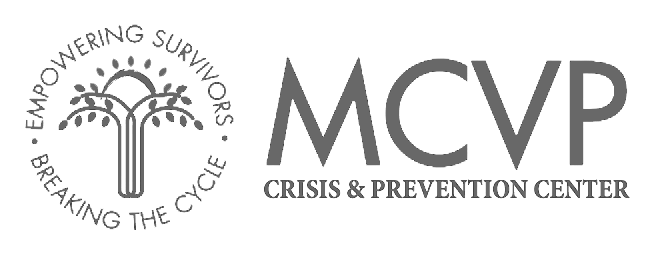GET HELP NOW
“This model CAC replicates other successful models around the country that embrace healing support on site.”
Additional clinical support will be provided through the Pediatric Sexual Assualt Nurse Examination program coordinated by the New Hampshire Coalition Against Domestic and Sexual Violence.
“We hear from survivors that the choice they face, with children in tow, is: Do I go back to an abusive relationship where there’s a roof over our heads or do I become homeless?” said Lyn Schollett, executive director of the New Hampshire Coalition Against Domestic and Sexual Violence. “We certainly know plenty of folks who live in their car, and there are plenty of folks who feel their only option is to go back to the abuser.”
Experts: Human trafficking happens in NH and the opioid crisis is "exacerbating" the problem4/18/2019
These victims are manipulated and often don’t realize they’re being trafficked for sex or labor or both until they’re cut off from the world, threatened with violence and told to fear the consequences should they ever dare to leave.
“At first, they may see themselves as doing something for someone they care about; they see themselves as being in a relationship with the person who trafficked them,” said Linda Douglas, trauma specialist for the New Hampshire Coalition Against Domestic and Sexual Violence. “For a long time, there is a strong sense of denial, and they’re unable to see that they were coerced from the beginning. What they thought was their choice was, in fact, not, and now they’re someone’s property.”
The Senate also unanimously passed SB 235, which would establish an independent human resources position to handle sexual harassment complaints against legislators.
Senate President Donna Soucy, D-Manchester, a co-sponsor, said creating the position would give the public and “our employees the confidence in the system they need to come forward without fear of retribution.” Soucy said it is “beyond time to take sexual harassment in the State House seriously and I’m grateful to my Senate colleagues for unanimously supporting this common-sense measure.” Amanda Grady Sexton, director of public affairs for the New Hampshire Coalition Against Domestic and Sexual Violence, added: “Today’s vote is a strong signal that the Senate acknowledges the inherent power dynamic in play and takes seriously its responsibility to foster a safe and healthy work environment for their employees and the public. We are grateful for the leadership of Senators Soucy, Feltes, and Hennessey for bringing this initiative forward.”
Since fiscal year 2014, lawmakers have allocated anywhere between $52,781 to $643,456 to the prevention fund, with the largest-ever appropriation approved during the last budget cycle thanks to bipartisan leaders in the House and Senate who advocated for the increase, said Amanda Grady Sexton, the coalition’s director of public affairs.
Considering all funding sources, the coalition and its crisis centers would receive about $2.4 million annually under Sununu’s budget proposal which includes the $1.2 million state contribution. New Hampshire’s crisis centers continue to turn away victims from its domestic violence emergency shelters due to lack of capacity. In the past two years, a total of 1,854 adults and 1,310 children were denied housing. That was during the same time the state contributed more than half a million in support services to the Domestic Violence Prevention Program. “Finding the strength to leave an abuser and seek support should never be met with a closed door, but rather open arms and adequately funded services,” Grady Sexton said. “Our hope is that no survivor is ever turned away due to a crisis center being underfunded. We must show victims and their children that the state of New Hampshire prioritizes their safety, and that starts by allocating funds to support the lifesaving work being done by our state’s crisis centers.”
Investigators and advocates alike are expressing relief that, because Baker moved out of New Hampshire years ago, the investigation could move forward.
"The passage of time in no way mitigates the harm done to these victims, and we hope that this is step towards healing and towards justice,” said Madison Lightfoot, of the New Hampshire Coalition Against Domestic & Sexual Violence.
"Human trafficking, specifically sex trafficking, is modern slavery in which victims become involved in the commercial sex industry through force, fraud and coercion," said Madison Lightfoot of the New Hampshire Coalition Against Sexual and Domestic Violence.
New Hampshire became one of the first states to make human trafficking a felony in 2014. Frantzer Fleurimond, 28, was the first person successfully prosecuted under the new statute when he pleaded guilty to subjecting four women to prostitution on the Seacoast by controlling their access to heroin. Lightfoot said traffickers prey on the most vulnerable. "Whether it's a child being trafficked by their own family member out of their own home or a trafficker advertising for sex services on social media or on the Internet," she said. Advocates said human trafficking is happening across the state, most often in motels and private homes. "Human trafficking oftentimes goes undetected because human traffickers are experts at moving constantly without detection, and victims are oftentimes reluctant to come forward," Lightfoot said. The sting in Florida that resulted in charges being filed against Kraft is an opportunity for awareness to hit home, she said. "The more we can continue to shed light on these realities and know what human trafficking does, in fact, look like here in New Hampshire, the better equipped we will be to combat these crimes, to help victims seek safety," she said.
Victim advocates and legal professionals say human trafficking – the use of force or coercion to compel people into labor or the commercial sex trade – is more common than people imagine.
“When people think of human trafficking, they think about something that’s happening far from home and tend to talk about it maybe in the abstract; but unfortunately, this is pervasive and it’s happening every day and it’s happening in our backyard,” said Madison Lightfoot, spokeswoman for the New Hampshire Coalition Against Domestic and Sexual Violence.
Earlier, the House had provided information about nine complaints between 2015 and December 2017. The Senate said at that time it had no records of such complaints, though Jessica Eskeland, public policy specialist for the New Hampshire Coalition Against Domestic and Sexual Violence, said she hears anecdotal complaints about Statehouse harassment a few times a month.
"We know that sexual harassment takes place everywhere and here is no exception," she said. "And we know that the number one reason cited for those who have concerns or complaints is fear of retribution." The bill would also require the Legislature to create a new sexual harassment policy that would be reviewed and revised as needed every two years. Lawmakers on the committee said they want to review recently enacted policies in neighboring Maine and Vermont.
Aside from Feltes, only the New Hampshire Coalition Against Sexual and Domestic Violence testified in support of the bill. No one testified against it. Gov. Chris Sununu, speaking to reporters later in the day, said he had no problem with the idea of creating a new human resources position at the State House.
|
Archives
June 2024
Categories |
Our Supporting Partners
The 12 member programs of the New Hampshire Coalition Against Domestic and Sexual Violence provide services regardless of gender,age, health status (including HIV-positive), physical, mental or emotional ability, sexual orientation, gender identity/expression, socio-economic status, race, national origin, immigration status or religious or political affiliation.
Funding for this website was provided by The Corporate Fund.
New Hampshire Coalition Against Domestic and Sexual Violence
PO Box 353, Concord, NH 03302-0353
(603) 224-8893
New Hampshire Coalition Against Domestic and Sexual Violence
PO Box 353, Concord, NH 03302-0353
(603) 224-8893
NH web design by Harbour Light Strategic Marketing

 RSS Feed
RSS Feed












